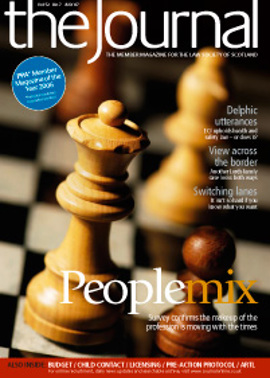The Oracle has spoken

In language of more than usually Delphic obscurity, the European Court of Justice (Third Chamber) has now “clarified” the legislative intention of the Framework Directive on health and safety, Council Directive 89/391/EEC (Commission v United Kingdom, Case C-127/05, 14 June 2007). The importance of this for Scots lawyers is that the Framework Directive potentially governs the lawfulness of the whole of UK health and safety provision, statutory and common law, and controls the meaning of all UK health and safety regulations made to give domestic effect to EU directives since 1989.
As was widely predicted, the ECJ has followed the opinion of Advocate General Mengozzi (18 January 2007) and dismissed the EU Commission’s infringement proceedings against the UK. An indication of AG Mengozzi’s reasoning and of the background to the case can be found in a previous article, “After the Fall”, 2007 SLT (News) 35.
The Commission’s argument was that the “so far as is reasonably practicable” (“SFAIRP”) restriction on the employer’s otherwise absolute duty to ensure health and safety in terms of the UK Health and Safety at Work Act 1974 (“HSWA74”), s 2 is incompatible with the EU Framework Directive, article 5, which does not permit anything more than a limited force majeure defence for “events detrimental to workers’ safety and health”. According to sources close to the Commission, the thinking from 1987, when the directive was drafted, until 14 June 2007 was that, where preventive measures fail, with injurious consequences for workers, employers should be liable unless they can establish that the “harmful occurrence” was due to “extraneous events with no link to the working conditions controlled by the employers”. There is said to be no place in this scheme for the risk-cost-benefit calculus envisaged by SFAIRP, and in particular there is supposed to be no place for a defence of disproportionate, even grossly disproportionate cost (cf Edwards v National Coal Board [1949] 1 KB 704; Marshall v Gotham [1954] AC 360).
Choosing the ground
The Commission went to court apparently convinced that the only issue was the proper scope of the employer’s defence: but the UK fought back hard, challenging the underlying assumption that the Framework Directive was about strict liability at all. AG Mengozzi and subsequently the ECJ agreed with the UK and ruled that article 5.1 has in view, rather than a comprehensive result-obligation to ensure health and safety, only a means-obligation to take particular preventive measures to that end, the content of which is specified in articles 6-12. The ECJ was thus able to conclude that the Commission’s charge against the UK of non-transposition by “unduly restricting the duty to ensure the safety and health of workers” is not made out. The infringement proceedings have boomeranged and the Commission’s cherished health and safety regime now lies in pieces.
From the Scottish litigator’s perspective it might seem odd for the Commission to have picked this particular fight with the UK because, apart from anything else, SFAIRP in the context of HSWA74 s 2 is practically speaking a non-issue in the courts. HSWA74 s 2 imposes exclusively criminal liability; the s 2 SFAIRP defence is hardly ever effective for employers (e.g. Lockhart v Kevin Oliphant Ltd 1993 SLT 179); and it might only have been a matter of time before someone successfully argued, in either criminal or civil proceedings, with or without a preliminary reference to the ECJ, that “reasonable practicability” – a concept which occurs in scores of other places in health and safety legislation, including regulations made purportedly in implement of EU directives – now has to be given a restricted meaning in conformity with the Framework Directive, recital 13 of the preamble and article 5.4 (cf Skinner v Scottish Ambulance Service 2004 SC 790).
Competing weaknesses
The main weakness in the Commission’s position was its inability to contest HM Government’s assertions – which were accepted by the Advocate General and the court – about the UK legal system. If the Commission does not have in-house expertise or specialist UK counsel instructed ad hoc to deal with the UK law aspect, it might have been prudent to wait for the issues to be sorted in a concrete case between UK litigants (represented by UK lawyers), referred to the ECJ for a preliminary ruling on the meaning of the Framework Directive or one of its “daughter” instruments.
The Commission might have also been better using its resources to educate UK lawyers into taking questions of interpretation to the ECJ. Hammond v Commissioner for the Metropolitan Police [2004] ICR 1467 is an example of the kind of case which should have been referred to Europe, on the question whether and in what circumstances the definition of “work equipment” extends to items undergoing repair. In the absence of a definitive ruling, a similar issue has now arisen in Franks v Kellogg Brown & Root Ltd and Others, Second Division, 2007 SLT 392. At para 8 the Lord Justice Clerk made fair comment on the problems of interpretation “to which the obscurity of these regulations may give rise”. But none of the parties asked for a reference, and neither the sheriff nor the Inner House thought to refer ex proprio motu.
Why HM Government, through the Health and Safety Commission as lead agency, should have contested the SFAIRP point, and why the Health and Safety Commission and Executive should now be trumpeting the result, are also mysteries (“European Court supports UK safety laws”, Government News Network press release, 14 June 2007). To be fair, I gather from HSE insiders that concern focused on the myriad practical regulatory decisions below the litigation threshold which HSE inspectors have to make day and daily applying “reasonableness” criteria. Still, it is clearly arguable, as one leading continental commentator believes, that the UK health and safety regulators have now “cut the ground from under [their] own feet” (L Vogel, “The ‘reasonably practicable’ clause”, HESA Newsletter, March 2007, no 22 (ETUI Brussels), 9 at 32; http://hesa.etui-rehs.org/uk/newsletter/newsletter.asp).
The Republic of Ireland has taken a different tack. Originally Ireland joined the UK in seeking amendment of the draft Framework Directive and then in resisting transposition; but Ireland has now come into line by the simple expedient of keeping SFAIRP while re-defining “reasonable practicability” to harmonise with the Framework Directive force majeure clause in a way which apparently meets with Commission approval (Safety, Health and Welfare at Work Act 2005, ss 2(6), 8 and 81). It is possibly surprising that this development went unnoticed by the Third Chamber when one of the five-member bench was Judge O’Keefe.
Open questions
The decision in Case C-127/05 puts an end for the time being to the debate about the lawful scope of employers’ defences to charges under HSWA74 Part I; but, contrary to what I predicted in the previous article cited above, it very much leaves open questions about the intended meaning of post-1989 UK health and safety regulations made to give effect to European directives.
The ECJ stated in a notably oracular passage of its recent judgment, para 49: “As Advocate General Mengozzi observed at point 82 of his Opinion, it is apparent from the wording of [article 5.4] that it is intended to clarify the scope of certain provisions of Directive 89/391 by explaining the margin of manoeuvre available to the Member States in transposing those provisions into national law.”
If I understand this passage correctly, the Framework Directive, article 5.4 permits member states to qualify employers’ liability for failing to ensure compliance with particular obligations set out in the Framework Directive and also, presumably, by virtue of article 16, in relation to the content of the individual “daughter” directives, e.g. on work equipment – but only to the limited extent permitted by article 5.4.
This being so, there remains an argument based on the wording of article 5.4 that where the national transposing regulations qualify preventive measures with expressions – like “reasonably practicable” or “reasonably foreseeable” – which do not occur in the source directive, these expressions have to be interpreted, if at all possible, as force majeure exceptions to the employers’ liability for “detrimental occurrences”, rather than as preconditions of the employers’ obligation to prevent such occurrences (Litster v Forth Dry Dock & Engineering Co Ltd 1989 SC (HL) 96). In short, it may be arguable that in such situations the emergence of a risk within the ambit of a protective measure raises an inference of liability, and that the onus lies on employers to prove that the risk could not reasonably have been avoided (Taylor v City of Glasgow Council 2002 SC 364; Robb v Salamis (M & I) Ltd 2007 SLT 158 at 167 per Lord Clyde).
Consult the oracle
All I say is that this is a possible meaning, without doubting that there are other interpretations. Only the ECJ can provide an authoritative answer to this and many other issues which arise on the meaning of EU-derived health and safety regulations. The important lesson for Scots lawyers is that every health and safety case based on the regulations potentially raises the need for a reference to Luxembourg. In future, consult the oracle.
Thanks for information supplied are due to Laurent Vogel, European Trade Union Institute for Research, Education and Health & Safety, Brussels.
In this issue
- The power of marks: Frankie goes after Hollys name
- Confidentiality clauses - beware!
- Into the fast lane
- All change please...!
- Benchmark for practice
- Old, new, borrowed and blue
- Old, new, borrowed and blue (1)
- The Oracle has spoken
- High road, low road
- Point of contact
- Stuck in a rut?
- Counsel's fees - a reply
- Fraud: no hiding place
- A chance to shine
- CDD is the new ID
- System integrity
- Professional negligence: Pre-Action Protocol
- Not just a fancy name
- More on "enough is enough"
- Are you up to the Act?
- Saving energy - and effort
- Takeover goals
- Expensive consequences
- Expensive consequences (1)
- Scottish Solicitors' Discipline Tribunal
- Website reviews
- Book reviews
- Time (to prepare) please!
- ARTL - now and then?






